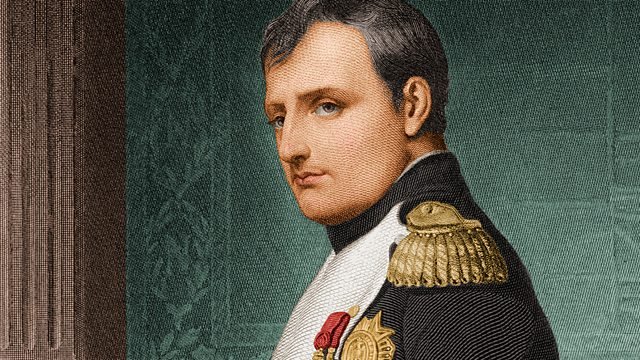6 Things You Probably Didn't Know About Napoleon Bonaparte
Napoleon Bonaparte, one of history's most iconic figures, continues to captivate the world with his remarkable rise to power and military prowess. His impact on Europe and the world at large is undeniable, but beneath the well-known narratives and portraits lies a man shrouded in mystery and complexity. Here, we delve into seven lesser-known aspects of Napoleon's life that offer a more nuanced understanding of the enigmatic Emperor.
Here’s 7 things you probably didn’t know about him…
A man of humble beginnings: Contrary to the popular belief that Napoleon hailed from a noble family, he was actually born into a relatively modest household in Corsica. Born on August 15, 1769, Napoleon Bonaparte's family background was not that of aristocracy, but of minor nobility. His father, Carlo Buonaparte, was a lawyer and his mother, Letizia Ramolino, came from a respected Corsican family. It was his ambition, intelligence, and extraordinary military talent that paved the way for his meteoric rise.
A multilingual prodigy: Napoleon was a polyglot with an impressive command over various languages. Besides his native French and Corsican, he spoke Italian, English, and rudimentary German. This linguistic ability allowed him to communicate directly with diverse populations within his vast empire, earning him both respect and loyalty from his subjects.
Ambivalent stance on religion: Despite being baptized as a Catholic, Napoleon's relationship with religion was complex. He admired the principles of the Enlightenment, and during his rule, he initiated various secular reforms that diminished the power of the Church. Yet, in a pragmatic move to consolidate his authority, Napoleon reconciled with the Catholic Church through the Concordat of 1801, re-establishing Catholicism as the dominant religion in France. This act aimed to stabilize the country while guaranteeing religious freedom to all.
A progressive ruler: Napoleon is often considered a progressive ruler due to his introduction of groundbreaking legal reforms. He codified French law into the "Napoleonic Code," which influenced legal systems worldwide. This legal framework was based on principles of equality, secularism, and meritocracy, significantly modernizing the legal systems of his time.
4. Exiled more than once: While most are familiar with Napoleon's final exile to the remote island of Saint Helena after his defeat at the Battle of Waterloo, fewer know that he had been exiled once before. Following his initial abdication in 1814, he was sent to the island of Elba in the Mediterranean. However, he managed to escape and return to power for the Hundred Days, only to be defeated again, leading to his ultimate exile.
5. Remarkable military strategist: Napoleon's strategic genius on the battlefield is legendary, and many of his military tactics are still studied today. He was a master at maneuvering his troops and adapting to changing circumstances, often achieving victory against overwhelming odds. His swift and audacious military campaigns were a key factor in his ascent to power.
6. A prolific writer: Beyond his military campaigns, Napoleon was also an intellectual and a prolific writer. During his exile on Saint Helena, he spent his time reflecting on his life, reign, and the events that led to his downfall. He dictated his memoirs to trusted aides, offering invaluable insights into his thoughts and actions.
Napoleon Bonaparte's legacy is a tapestry woven with both light and shadow. His accomplishments and flaws, his ambition and his defeats, have left an indelible mark on history. By delving into the lesser-known aspects of his life, we can gain a deeper understanding of the man behind the myth and appreciate the complexities of this extraordinary figure.
Tomb of Napoleon Bonaparte.



